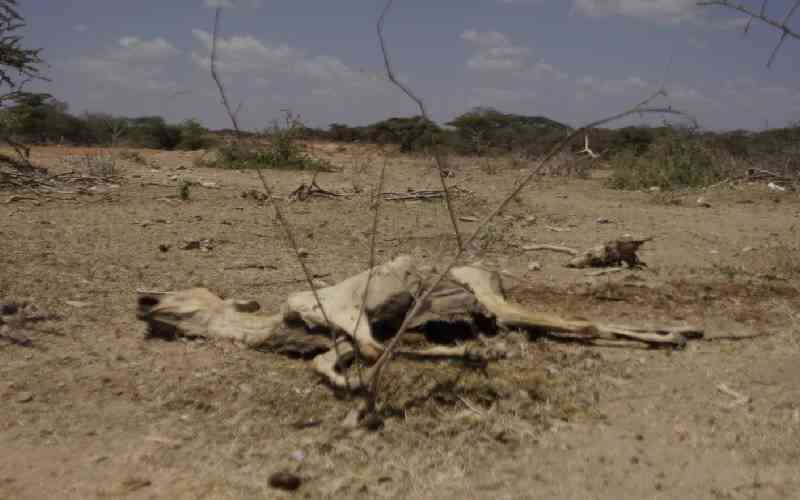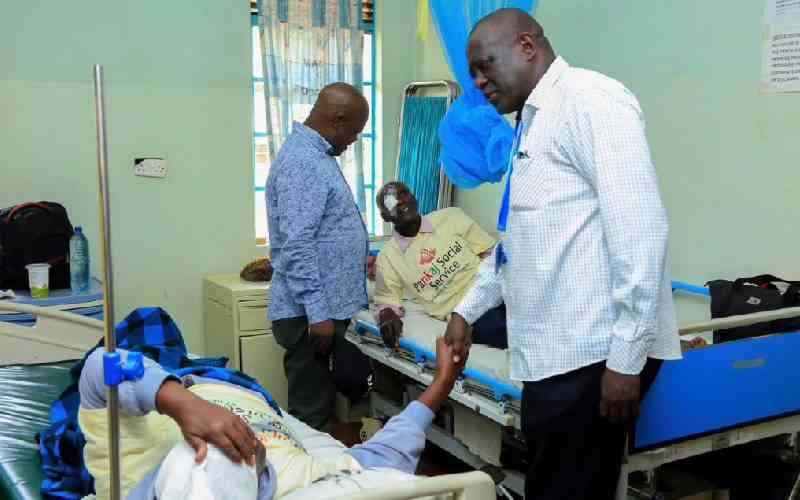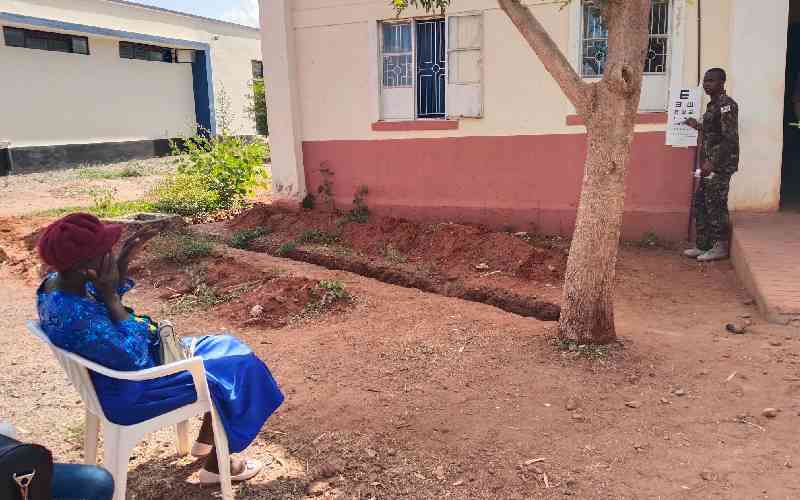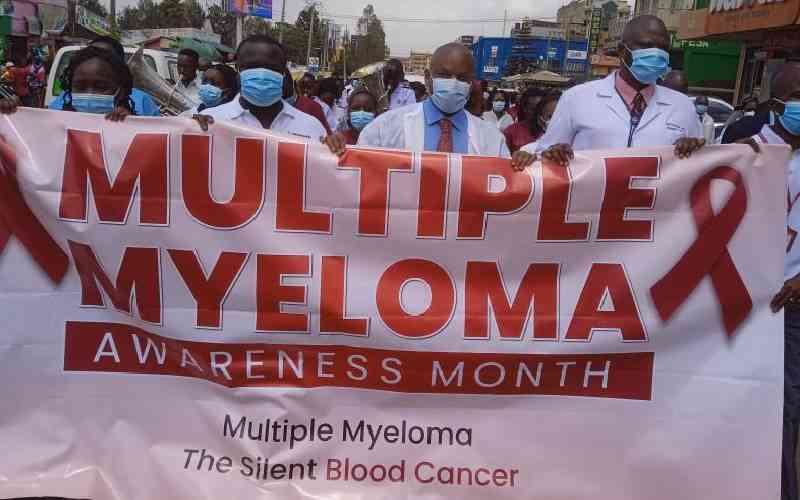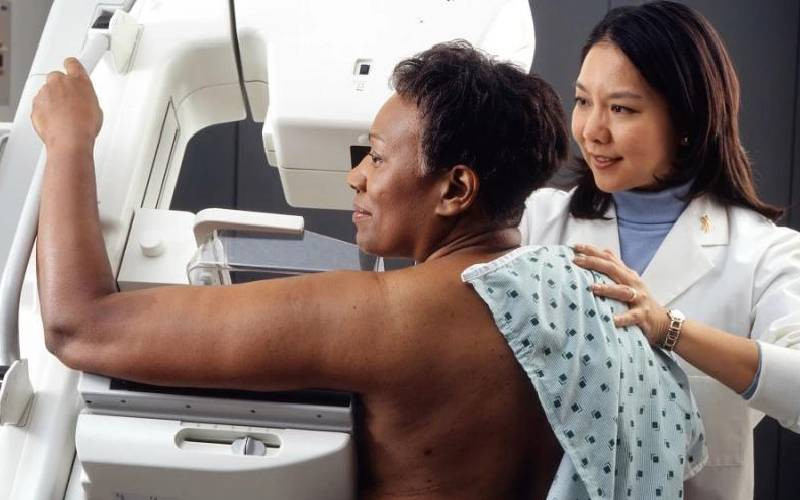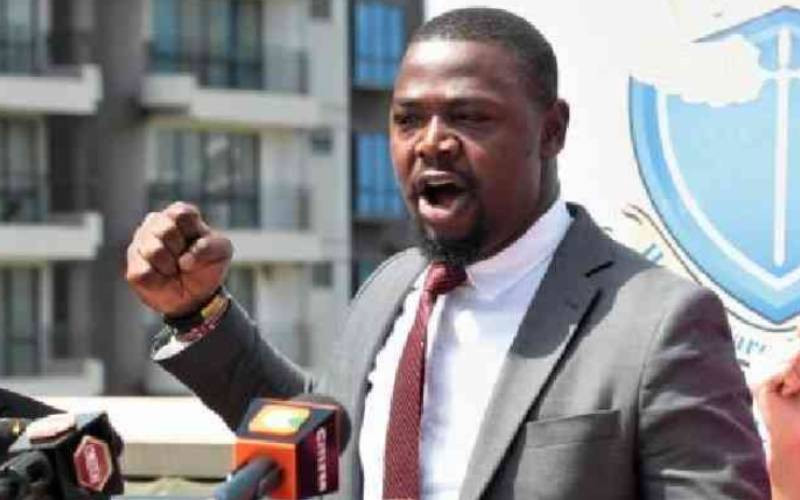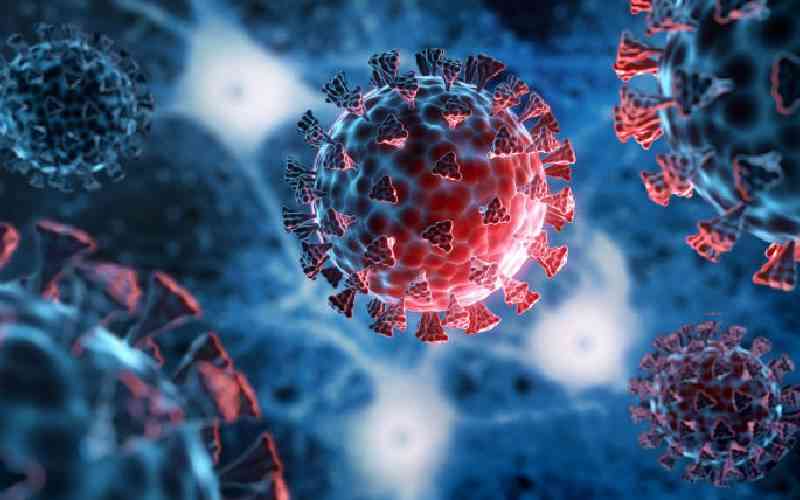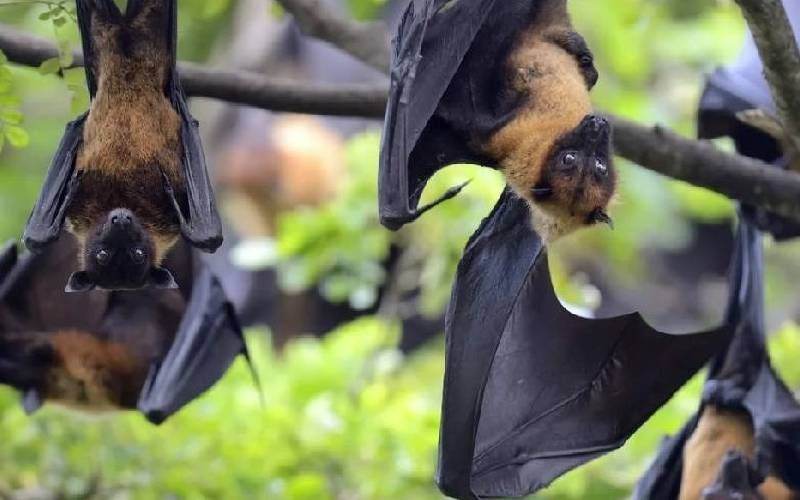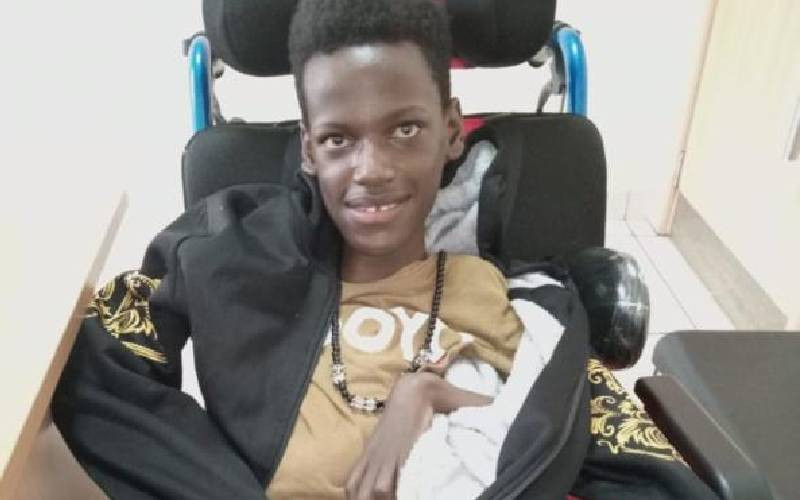
A few months after Greg Ngari was born in 2003, his mother noticed that he had regressed in his milestones. For one, he suddenly had a challenge picking things up with his hands. He would also fall suddenly yet he had started learning to stand while supported by a table or chair.
By the time he was one year and five months old, Greg could no longer stand as he was too weak. His mother couldn't understand what was ailing her firstborn child.
"After noticing the problems, my mother put me on her back and carried me to a health facility. That is what she tells me, "Greg says.
At the hospital, a paediatrician checked his calcium levels. The results showed the levels were normal and they were told to go home. But Greg's mother didn't give up. She took him to another facility so she could understand what was happening in her son's life. "This time, the specialist who saw me ordered a muscle biopsy test. Unfortunately, this test didn't show anything that could lead to a proper diagnosis," Greg says.
Later, they were advised to visit a neurological paediatrician who took Greg's DNA samples for a test. They were told to go home and wait for a month before coming for the results. When they returned, a doctor broke the news to Greg's mother, he had Spinal Muscular Atrophy (SMA), Type A with a nerve disorder. According to experts, this was the most severe type of the condition.
According to global healthcare company Novartis, SMA is a rare and devastating genetic disease caused by a lack of a functional survival motor neuron 1 (SMN1) gene, and resulting in the rapid and irreversible loss of motor neurons, affecting muscle functions, including breathing, swallowing and basic movement.
According to the CDC, on a global scale, 1 out of every 10,0000 babies are born with this neuromuscular disorder. Genetically, Novartis explains, approximately 1 in 54 people carry the genetic defect for SMA and two carriers have a 25 per cent chance of having a child with this disorder globally.
In Kenya, according to Sam Gwer, a Consultant Pediatric Neurologist in Nairobi, there's no data provided.
Signs and symptoms of this neuromuscular condition, according to Dr Gwer, include progressive muscle weakness and, in severe cases, inability to breathe or swallow spontaneously or undertake voluntary movements like holding one's neck, speak, sit and even walk.
Greg, now 20 years old, says that a doctor told his parents that he was the second known child in Kenya to have the condition where neither of the parents are carriers. In the last case, the infant died three years later.
"My parents were worried that I was to die soon, so to avoid this, we were advised to visit a physiotherapist," Greg says. He was also put on medication to silence the progress of symptoms but the treatments offered little help as time went on.
Like any other child, Greg started nursery school. As he was unable to walk without support, someone pushed him to school and back in a wheelchair.
His parents later placed him in a homeschooling programme where he was to be taught how to read and write by a certain trainee but due to the nature of SMA, they dropped the programme one year later.
"Hardly a week passed before I was admitted to a hospital. While in school, I had frequent pneumonia which affected my concentration in class and on top of that, I developed weakness in my hands and I couldn't write or hold anything. I was forced to drop out of school," he recalls.
By the age of 11, the condition had worsened and affected almost all of his organs with the respiratory system being the most affected. "My right lung collapsed and I'm using the left one to date. My stomach moved to the left side of my body, I was weak to a point I couldn't sit without support and I'm still experiencing this to date, " Greg says.
"In the bed, I need an attendant to turn me from one side to another. I'm also facing difficulties in chewing and swallowing food. These are problems I'm facing even now, " he says.
When he turned 17, he weighed only 22kgs. He struggled to eat as his jaws were becoming weaker by the day.
"Since I could not eat, doctors and nutritionists advised my parents, to feed me using a syringe and after two years or so, I had gained 3kgs," Greg says.
"I'm among those people who have suffered a lot in this world, but I believe there's always light at the end of darkness. I'm still wondering why I have this tormenting condition despite my parents not being carriers of the responsible gene," Greg says.
Greg says that by this age, he was to be in one of the big universities in Kenya.
"I'm a very sharp learner in school and I grasp content with ease. Writing is my hobby. In fact, I am writing a novel, " Greg says. He faces difficulties operating a mobile phone, so his parents have set his phone in such a way he can press it using one finger on the left hand, the only one that is not weak.
"I'm using my time to learn writing and editing skills on YouTube. I believe that one day, God will help me walk like any other young person out there, " Greg says.
He says his mother, brother and some friends have been his greatest supporters. Among themselves, they feed, wash and dress him and assist him to use his portable toilet. He is not on any medication but sometimes he goes for physiotherapy and for further checkups.
He remembers there was even a time he even rode a bicycle alone due to regular physiotherapy sessions. But in his current state, he cannot do much. Even sitting upright is difficult.
"There's certain medicine I'm supposed to take for this condition but they are expensive, keeping in mind that my parents struggle to make ends meet, " he says.
"My greatest challenge is stigma. Sometimes I may be in my wheelchair moving from one place to another and if I come across some of my friends, they look at me as if I'm Angel Gabriel. But there are some friends who have been supportive, a big shout out to them," Greg says.
"There are only three medicines that are used to improve and treat SMA, they are gene therapies that attempt to support the production of the missing protein. Because they are gene therapies automatically they are very expensive, " Dr Gwer explains.
Greg urges the government to invest in care and research for rare conditions. Also, the Ministry of Education should look for ways to help me get an education like any other child since I believe I am talented, " Greg says.
 The Standard Group Plc is a multi-media organization with investments in media
platforms spanning newspaper print
operations, television, radio broadcasting, digital and online services. The
Standard Group is recognized as a
leading multi-media house in Kenya with a key influence in matters of national
and international interest.
The Standard Group Plc is a multi-media organization with investments in media
platforms spanning newspaper print
operations, television, radio broadcasting, digital and online services. The
Standard Group is recognized as a
leading multi-media house in Kenya with a key influence in matters of national
and international interest.

